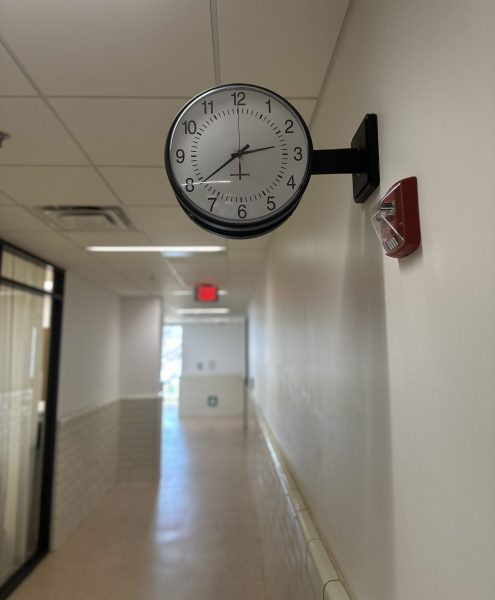OPINION: Drone attacks: bad policy, inhumane, unconstitutional
April 2, 2013
Turn on the news and chances are there will be a report of terrorist casualties due to a drone strike. Many will be pleased that the military and the CIA are simultaneously taking out enemy combatants and keeping troops out of harm’s way. Although this was also my initial reaction to drone attacks, recent developments have changed my perception of the drone program.
The Department of Justice recently released a 16-page memo detailing their legal reasoning for the government’s ability to coordinate strategic assassinations of U.S. citizens with a drone strike. In order for drones to be used, a citizen must be an “imminent threat” to the United States and “senior operational leaders of Al-Qaeda.” The government already put this rationale to use in September, 2011, when it killed Al-Qaeda operative, 9/11 co-conspirator, and American citizen Anwar Al-Awlaki in a drone strike. There was no attempt to capture him once his location was confirmed, and no trial, just an aerial assassination coordinated by the CIA and U.S. Air Force.
I am not defending terrorists, nor am I proposing the complete elimination of drones in warfare, but I am merely pointing out the dangers of allowing the government to assassinate citizens.
The Constitution gives American citizens a right to a fair trial, and there is no exception. The government cannot justify the intentional elimination of an American citizen where capture is possible, or in this case, not even attempted. The governments’ legal rationale is completely arbitrary and is subject to the interpretation of the executive branch. Since all of the information on Al-Qaeda comes from the CIA, no one, no media entity or activist group, can challenge whether someone is actually a high-ranking member of al-Qaeda. Since the memo is a DOJ policy statement, Congress cannot challenge it; it is up to the Supreme Court to rule on its constitutionality and that doesn’t seem likely to happen anytime soon.
Further research on the history of the drone program has made me realize the problem runs much deeper.
The drone has become President Obama’s weapon of choice in the War on Terror. His administration accounts for over 370 of the 420 strikes in Pakistan and Yemen since 2004. Although no official numbers have been released of the total estimated casualties caused by U.S. drone strikes, Senator Lindsey Graham recently estimated the number to be around 4,700, with more than a quarter of these deaths described as non-militant civilians.
How does a weapon praised for its accuracy have such a large percentage of civilians in its kill totals? What was originally used as an alternative to the insertion of special forces teams has now become a full-fledged tool of destruction. In kill-or-capture situations, drones are at a huge disadvantage because they are incapable of taking hostages and have difficulty distinguishing between enemies and civilians. Special forces operations may involve more risk to U.S. soldiers, but they can perform valuable tasks drones can’t, and they are substantially less likely to cause civilian casualties.
The large number of civilian deaths caused by these drone strikes has been met with protest from all over the Middle East. Perhaps the country most affected by these operations is Pakistan. Recently, during a speech in New York, Pakistan’s foreign minister Hina Rabbani Khar said, “If they’re going for terrorists, we do not disagree. But we have to find ways which are lawful, which are legal. The use of unilateral strikes on Pakistani territory is illegal.” Obviously the drone policies are not doing our foreign relationships any favors, and President Obama is in danger of damaging his reputation.
This administration’s drone program is based on an indiscriminate and militaristic policy that kills innocent civilians of other countries, threatens international relations, and infringes upon the rights of American citizens, all in the name of safety. First it was the Patriot Act under President Bush, and now it is the justification of drone strikes that include the assassination of U.S. citizens. It’s time for the president to reconsider the abuse of human rights and how it’s impacting our already poor relationships with governments in the Middle East. He also needs to realize that the DOJ memo shows him following right in his predecessor’s footsteps, something I’m sure he’d prefer not to do. As for the American people, it’s about time for us to take a long, hard look at ourselves and ask, “How much more of my freedom am I willing to sacrifice in order to feel safe?”
















